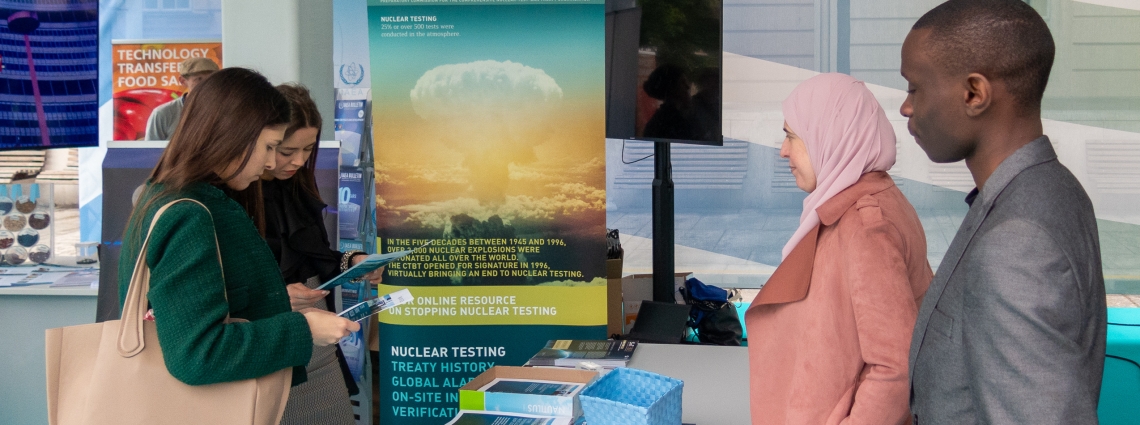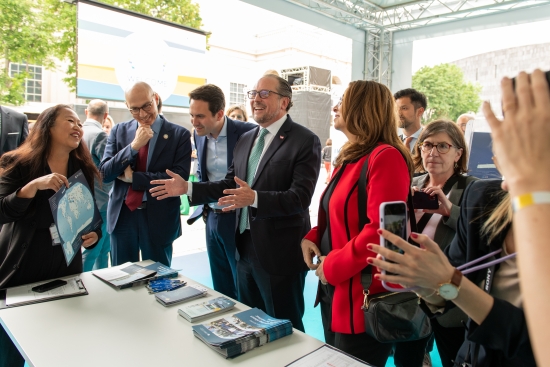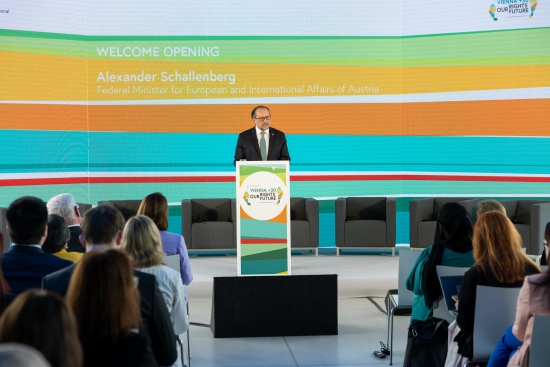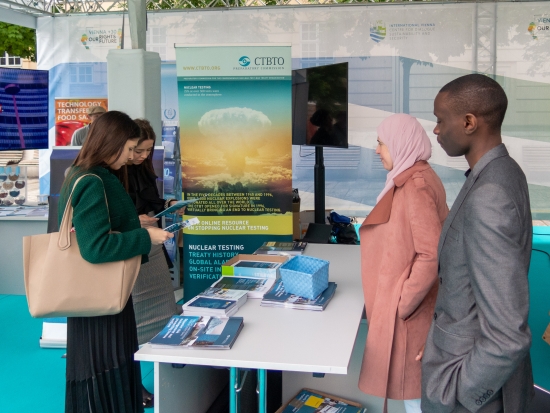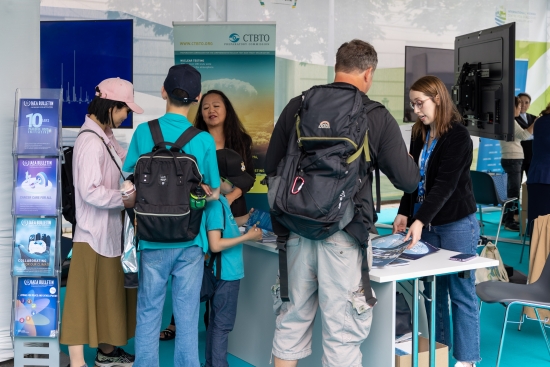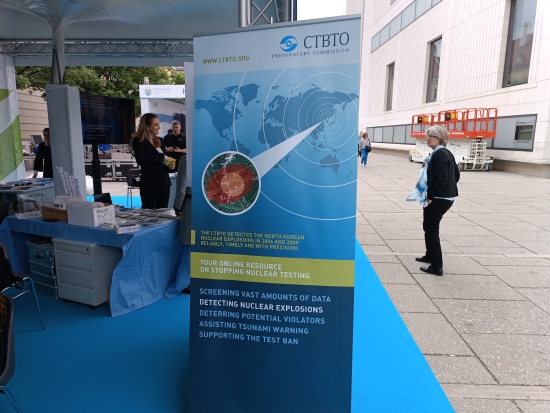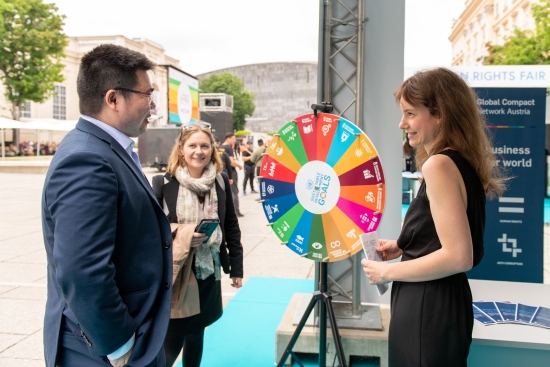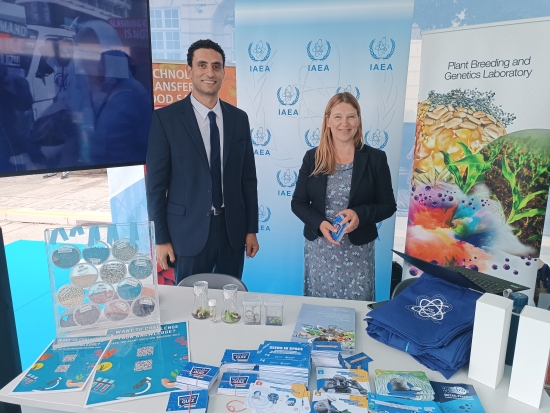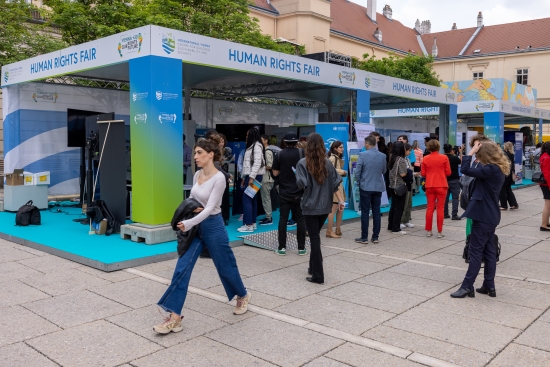CTBTO showcases nuclear test detection science at Vienna+30 Human Rights Fair
The Comprehensive Nuclear-Test-Ban Treaty Organization (CTBTO) participated in the Vienna+30 Open Air Human Rights Fair at the MuseumsQuartier in the Austrian capital alongside 15 other national and international organizations on 5 and 6 June.
The fair was held as part of a series of events commemorating the 30th anniversary of the Vienna Declaration and Programme of Action (VDPA). Adopted unanimously at the World Conference on Human Rights on 25 June 1993, the Vienna Declaration presented concrete recommendations to strengthen the promotion and protection of human rights worldwide, including bolstering the capacity of the United Nations system. In response, the UN General Assembly established the position of UN High Commissioner for Human Rights in December 1993.
The event was hosted by the Austrian Ministry of European and International Affairs in partnership with the United Nations in Vienna, with the objective of promoting meaningful engagement and raising awareness about human rights issues.
During the two-day fair, CTBTO's staff from the Public Information (PI) Section, the International Monitoring System (IMS), International Data Centre (IDC), and On-Site Inspection (OSI) Divisions presented an overview of the organization's work to an audience of students, teachers, diplomats, tourists, and the general public.
They also delved into the ground-breaking science and technology employed to detect nuclear test explosions and provided information on how the data gathered by the global monitoring system can contribute to disaster risk reduction, such as helping governments issue timely and accurate alerts for earthquakes and tsunamis to help save lives.
After visiting CTBTO’s stand, one student, Mirai, said, “It surprised me to learn that since the CTBT opened for signature [in 1996], there have not been many occasions of nuclear testing because I had expected many states to actively test.”
“It was interesting to discover that organizations we wouldn't typically associate with human rights actually have connections to them," noted another student, Gabriel De Toledo Dias.
On the second day of the Open Air Human Rights Fair, prior to a high-level symposium, several distinguished guests visited the booths. Alexander Schallenberg, the Federal Minister for European and International Affairs of the Republic of Austria, Volker Türk, the United Nations High Commissioner for Human Rights, Ghada Waly, the Director General of the United Nations Office at Vienna (UNOV), and Christoph Wiederkehr, Deputy Mayor and Deputy Governor and the Executive City Councillor for Education, Youth, Integration, and Transparency of the City of Vienna, were among them. During the visit, Schallenberg expressed his support for CTBTO's mission.
At the fair, other international organizations showcased their work through interactive activities. The United Nations Information Service (UNIS) allowed visitors to create a lapel pin using logos and symbols associated with the UN and its sustainable development goals. The United Nations Office of the High Commissioner for Human Rights (OHCHR) offered a photo corner where attendees could take an instant picture while holding their favourite article from the Universal Declaration of Human Rights. The International Atomic Energy Agency (IAEA) demonstrated the application of nuclear science in ensuring food safety and combating food fraud by using rapid screening methods to authenticate samples of olive oil.
For Dirk Metz, a CTBTO hydroacoustic officer who represented the organization at the fair, "These events are a rare opportunity to reach out to the general public."
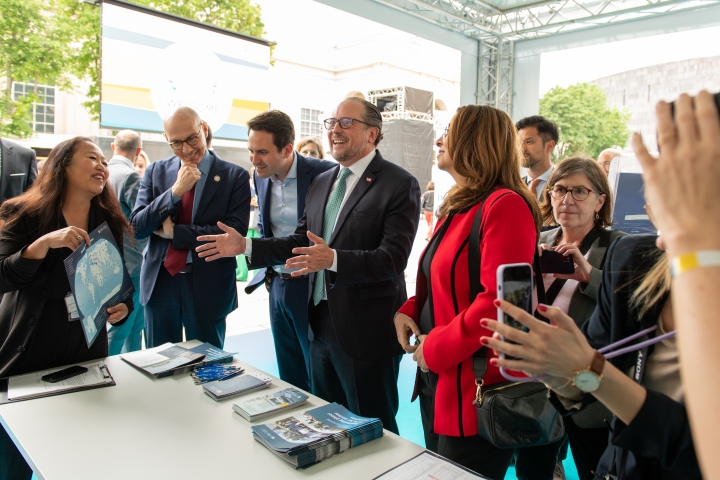
Officials touring booths
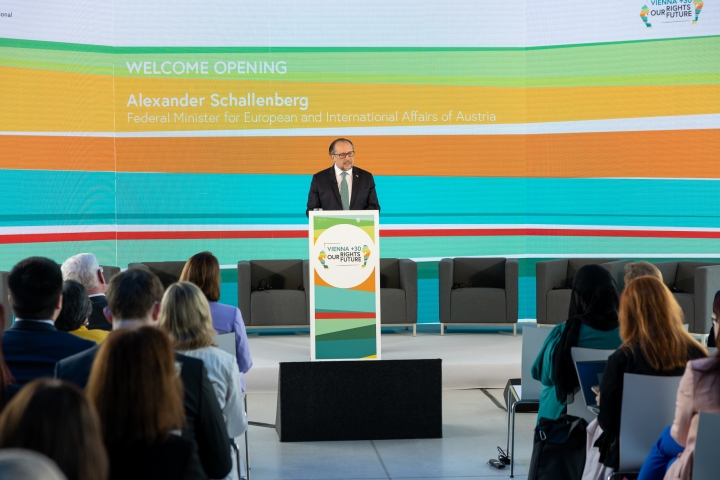
Alexander Schallenberg, the Federal Minister for European and International Affairs of the Republic of Austria delivering remarks at high-level symposium
13 Jun 2023
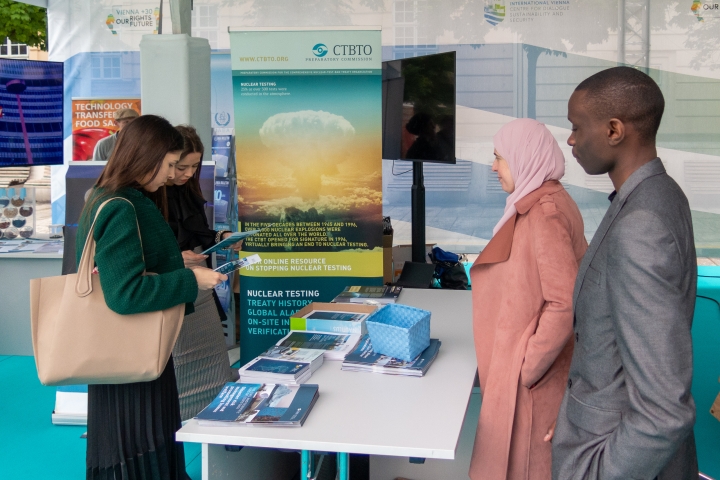
Visitors at CTBTO booth during Vienna+30 Human Rights Fair

Staff discussing CTBTO’s work with visitors
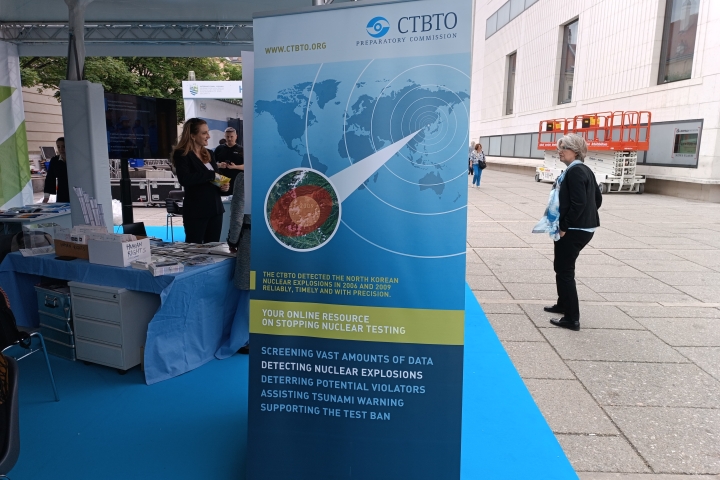
CTBTO banner at Open Air Human Rights Fair, MuseumsQuartier
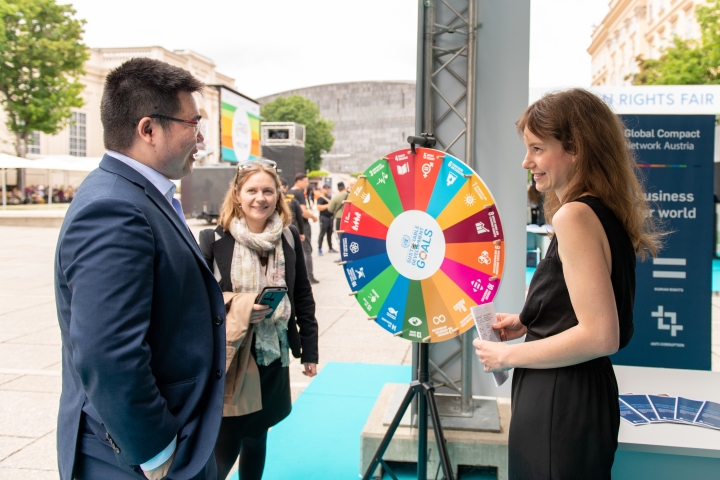
Global Compact Network Austria representative engaging with visitors on United Nations’ Sustainable Development Goals
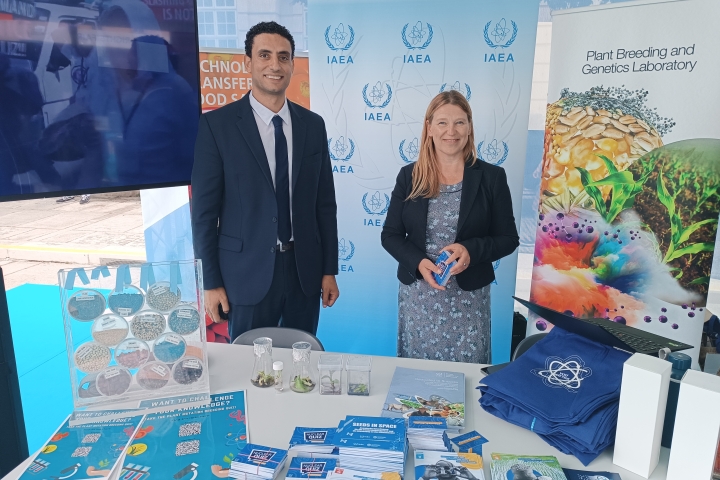
Representatives from the International Atomic Energy Agency (IAEA) during Vienna+30 Human Rights Fair
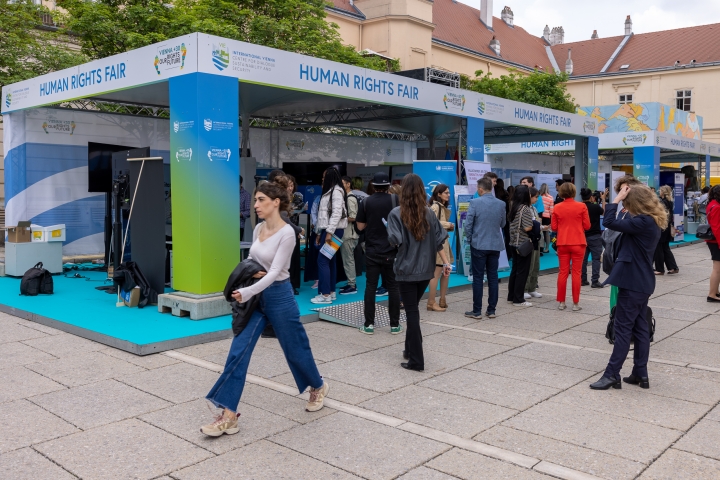
Overview of stands at Open Air Human Rights Fair
